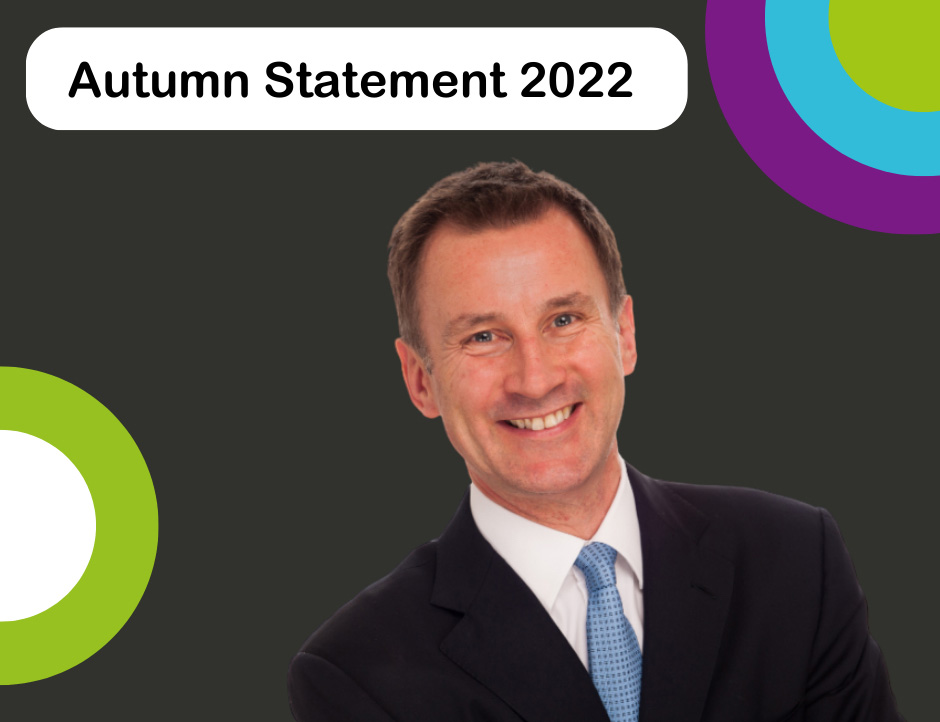Autumn Statement 2022
On Thursday 17 November Chancellor Jeremy Hunt announced his first Autumn Statement since being called to the position of Chancellor. This was never going to be a Statement of exciting promises. Rather, it was more a case of damage limitation.
Unfortunately the Statement delivered what many predicted – higher taxes and spending cuts. With just over a month to Christmas, the announcements were certainly far more in keeping with the Grinch than Santa Claus.
Jeremy Hunt acknowledged that there were to be very difficult times ahead. Whilst we would all have loved tax reductions and increased spending, you can’t ignore the fact that the economy is in bad shape right now. Naturally we will all have our own opinions on the announcements, but you can’t argue over the general consensus. When finances are tight, you have to find ways to increase income and tighten the purse strings.
So what were the headlines?
Taxation and Wages
- The minimum wage for people aged over 23 is to increase from £9.50 to £10.42 an hour from April 2023.
- State pension payments, means-tested and disability benefits are to increase by 10.1%, in line with inflation.
- Apart from in Scotland, the top 45% additional rate of income tax will be paid on earnings over £125,140, instead of £150,000.
- Income tax personal allowance and higher rate thresholds frozen for a further two years, until April 2028.
- Main National Insurance and inheritance tax thresholds are also frozen for further two years, until April 2028.
- The tax-free allowance for dividends will reduce in April 2023 from £2,000 to £1,000. It will then reduce further from April 2024 to £500.
- The annual allowance before capital gains tax is paid will be reduced from £12,300 to £6,000 in April 2023 and then to £3,000 a year later.
- Local councils in England will be able to hike council tax up to 5% a year without a local vote, instead of 3% currently.
Energy
- The household energy price cap extended for one year beyond April but made less generous, with typical bills capped at £3,000 a year instead of £2,500.
- Households on means-tested benefits will get £900 support payments next year.
- There will be £300 payments to pensioner households, and £150 for individuals on disability benefit.
- The windfall tax on profits of oil and gas firms is to increase from 25% to 35% and will be extended until March 2028.
- A new 45% tax is to be introduced on companies that generate electricity, and will apply from January.
Other
- A support package worth £13.6bn will be utilised over the next five years to help firms with business rates, including a mixture of freezes and reliefs.
- Import taxes will be removed on more than 100 goods, including some food products, for two years to help reduce costs.
- Plans for a possible online sales tax have been scrapped – the government argues online retailers’ warehouses will be hit harder than shops through business rate changes.
- Social housing rent increases in England will be capped at 7% from next April – instead of 11% due to inflation.
- Electric cars, vans and motorcycles are to pay road taxes from April 2025.
To call it a balancing act would be a huge understatement. Trying to fight through a recession, encourage growth, bring down inflation and increase public spending all at the same time is an almost impossible task. The positive news is that the economic forecasts, whilst highlighting difficult times ahead, have suggested that the future may not look as bad as previously forecast. The feeling seems to be survive the next 12-18 months, and all will be fine.
It’s worth pointing out that apparently more millionaires are made during recessions than at any other time. Here’s hoping that comes true for you.





